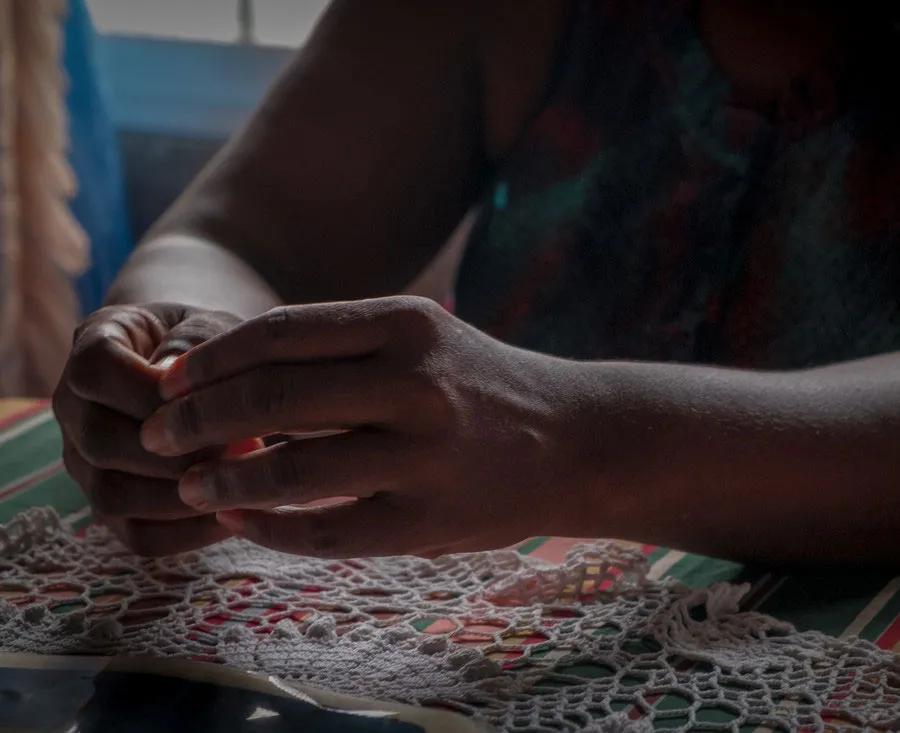Fleeing rampant crime and political violence, a collapsing economy, and severe shortages of food and medicines, some 1.5 million Venezuelans have arrived in Ecuador since 2016. Among them are LGBTQIA+ individuals, who face many risks, including intimate partner violence (IPV). An analysis carried out by CARE with 782 migrants and refugees in Ecuador in 2019 found that 50 percent of those who experienced discrimination and xenophobia, which is associated with increased exposure to gender-based violence (GBV), were LGBTQIA+ individuals.
For LGBTQIA+ refugees in Ecuador, violence is constant and is perpetrated by the State, law enforcement, and even service providers. Research by the Women’s Refugee Commission (WRC) found that LGBTQIA+ survivors of GBV who face prejudice from service provider staff are deterred from seeking support when it is needed most, and may forego support they are eligible for to avoid exposing themselves to this discrimination.
IPV is also widespread, though survivors are even less likely to access services for violence suffered at the hands of partners or other family members. The COVID-19 pandemic has worsened the situation, as people are stuck at home with abusers, and social distancing keeps survivors apart from support systems.
Response services for survivors of IPV are limited and insufficient for Venezuelans and Ecuadorians alike. For LGBTQIA+ individuals—including LGTBQIA+ refugees—the situation is especially challenging. They face many barriers to accessing services, including stigma. Until now they have been completely left behind when it comes to accessing cash and voucher assistance (CVA) to help them recover from incidents of IPV.
WRC, CARE, and Mujer & Mujer, along with two other local organizations, are working to change this. This is critical, as CVA, which is increasingly being used in humanitarian settings, can enable a timely response to meet urgent needs safely. It can help IPV survivors cover the costs associated with fleeing an abusive relationship, such as rent, transportation, food, medical care, and clothing.
Through the Enhancing Learning and Research for Humanitarian Assistance (Elrha) IPV Award, our organizations are piloting the integration of CVA within GBV programs to support displaced and Ecuadorian survivors of IPV, including LGBTQIA+ individuals.
In the absence of robust government services, this innovative project is working with local civil society organizations. Rather than creating parallel programs for refugees, we are expanding the capacities of existing providers, enhancing access to services for displaced populations and marginalized groups such as LGBTQIA+ individuals.
The project has faced several challenges along the way. The local organization we initially partnered with to implement the project struggled to support lesbian women who experienced IPV. It believed doing so went against its mandate to protect women’s rights because in a same-sex relationship “the aggressor and the survivor are both women.” In addition, its staff were not open to training on LGBTQIA+ inclusion.
Subsequently, the project was adjusted so that cis women and LGBTQIA+ survivors of IPV were received by separate organizations trained to meet their needs. A target was set that a minimum of 10 percent of the 150 target IPV survivors to be supported by the project were to be LGBTQIA+ individuals; however, LGBTQIA+ survivors were hesitant to disclose IPV due to stigma. And it was particularly challenging to reach LGBTQIA+ individuals who were displaced.
Implementation of the project recently came to an end. Between February and December 2021, the program supported 150 displaced and host survivors with cash assistance, among whom 48 percent were migrants and refugees, and six self-identified as LGBTQIA+.
What have we learned from this project?
- It is critical that organizations with LGBTQIA+ expertise are involved as partners from the beginning. Partnering with LGBTQIA+ organizations helps ensure programs are comprehensive, accessible, and safe for host community and refugee LGBTQIA+ individuals.
- Including activities that facilitate collective action among participants, including both Venezuelan and Ecuadorian women, was an important program component to help establish networks of survivors, which supports their resilience.
- When case managers accompanied survivors to get their cash, it helped them feel safe.
- Caseworkers should discuss survivors’ recovery goals and what goods and services they need, since survivors are best placed to know how cash transfers can best enhance their protection.
- Establishing strong networks among civil society actors helped professionals respond appropriately to cases disclosed by survivors, including facilitating referrals to services provided by others.
- Building the confidence of refugee and host community LGBTQIA+ individuals to overcome stigma and disclose incidents of GBV within a safe and ethical environment was key to them choosing to access services.
Moving forward, we will take what we have learned and advocate for uptake of similar programs at the local, country, regional, and global levels. IPV survivors deserve nothing less, whether they’re displaced or not, and whatever their sexual orientation, gender identify and gender expression. And it can mean the difference between life and death.
*The *Strengthening IPV Response for Migrants and Refugees through Cash and Voucher Assistance*is funded and supported by Elrha’s Humanitarian Innovation Fund (HIF) programme, a grant making facility which improves outcomes for people affected by humanitarian crises by identifying, nurturing and sharing more effective, innovative and scalable solutions. Elrha’s HIF is funded by aid from the UK Foreign, Commonwealth and Development Office. Elrha is a global charity that finds solutions to complex humanitarian problems through research and innovation. Visit www.elrha.org to find out more.*
For More Information:
Rachel Kent
CARE Senior Press Officer
Rachel.Kent@care.org

